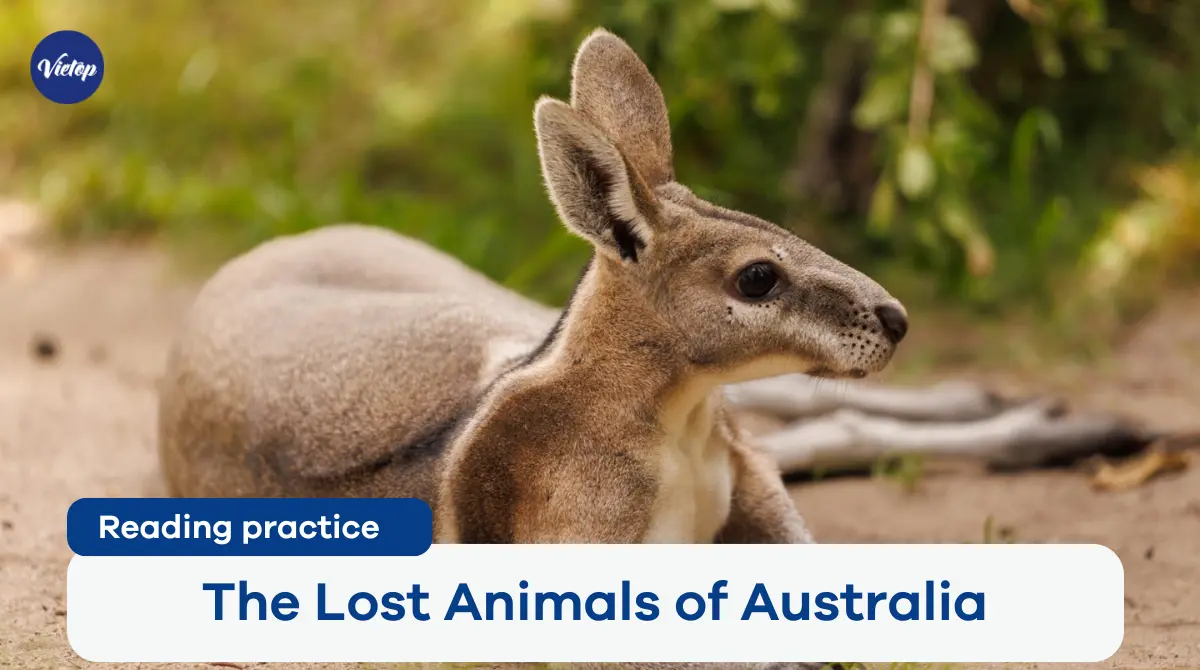A Most social scientists stubbornly resist the idea that animals have culture. Even such advanced cetacean mammals as whales and dolphins clearly don’t have art, literature, or architecture. But patient observation over many years has begun to reveal behaviors that can only have been learnt from other whales. And that, say whale biologists, constitutes culture.
B So far, humpback and killer whales provide the best evidence of culture in cetaceans, and the song of the male humpback is among the most striking examples. Humpback populations in different oceans sing different songs, but within the same ocean they all stick to the same one. However, during the breeding season the sounds change, as it appears that females are drawn to novel songs. One male might add an extra set of groans; another might drop a series of grunts. Soon all the other males have altered their own rendition to incorporate the changes until they are once again singing the same song. Since this occurs among thousands of whales spread across a vast part of the planet, the change cannot be in response to any factor in the animals’ environment. The latest version of the song can be learnt only from other whales – almost certainly by imitation.
C. Culture plays an even bigger part in the life of killer whales. Nowhere is this more obvious than along the north-west coast of America, where killer whales are split into two distinct populations – ‘residents’ and ‘transients’. They live in the same stretch of water, but they don’t mingle. In effect, they belong to two quite separate cultures. Residents live in stable groups, or ‘pods’, made up of two or three mothers and their offspring – perhaps 20 whales in all. Calves stay with their mothers throughout adulthood, and in many years of observation no one has ever seen a whale switch pods. Transients travel in smaller, more changeable groups of between three and six.
D. One of the most obvious distinctions between the transient and resident societies IS the way they impart information. Killer whales detect prey with a range of echo locating clicks, but converse with a vocabulary of squeaks, whistles and whines. Transients have only a few such calls, and all transient societies share the same ones. Residents have a much more extensive repertoire, and each family group has its own unique and distinctive set of calls. Despite regular interaction between them, each resident pod sticks firmly to its own dialect. Research shows these dialects are maintained for at least 40 years.
E. To qualify as part of killer whale culture, dialects must be learnt from other members of the pod. Animals with different dialects share the same waters, so the variations can’t be a product of the physical environment. “ And we can throw out the notion that the dialects are inherited,” says Lance Barrett-Lennard of the University of the British Columbia. He has spent the past seven years analyzing DNA from 270 whales. His paternity tests reveal that female killer whales invariably attract mates from outside their own pod – males with a very different dialects. If dialects were programmed by genetics, call patterns from both father and mother would be passed on the cafl. “A calf uses the calls of its maternal pod very precisely. There’s no input from the father,’ says Barrett-Lennard.
F. The question still remains – is this culture? It is, according to Frans de Waal of Emory University in Atlanta, who argues that culture is just another biological adaptation that has evolved in many creatures. One benefit of viewing culture in this way is that you can start to understand how and why it might have arisen in these creatures. Whales have several biological attributes that give them an advantage in social learning. Apart from their advanced mental abilities, they are adept at recognising sounds: ideal for communication in the marine environment. Many species spend years rearing their offspring, and live in small, stable, multi-generational societies, a social system that provides ample opportunity for teaching and learning.
G. But why have cetaceans evolved the ability to learn from other group members? Experts in whale biology believe that ecological factors and the need to adapt to sudden changes in the environment played a large part in the emergence of culture. Although the ocean is a relatively stable habitat in many ways, it is highly changeable in one crucial respect – the availability of food. One moment there might be a plentiful supply of fish, the next they’ve disappeared. When that happens, the past experience of the senior members of the group – and the ability to share this knowledge – is a huge asset. The dialects of killer whales allow members of the groups to identify each other, enabling them to share information about food hot spots. Among resident killer whales, it also allows females to avoid inbreeding by picking out a mate with a strange dialect from outside their pods, says Barrett-Lennard.
H. The importance of share information seems to have led to biological changes in at least some species of whale. Female killer whales, like humans, are very unusual in that they live up to a quarter of a century after they had their last offspring. This only makes sense if they have something useful to give their descendants. And what whale matriarchs offer is the most important thing of all – cultural knowledge, vital for the group’s survival, passed directly from one generation to the next.
Bạn thường gặp khó khăn trong quá trình làm bài thi Reading Practice. Đến với chủ đề chủ đề “Whale culture” không chỉ giúp bạn mở rộng kiến thức về thế giới đại dương và văn hóa của loài cá voi mà còn rèn luyện kỹ năng xử lý thông tin và trả lời các dạng câu hỏi phức tạp trong bài thi Reading. Và để làm tốt dạng bài này, việc tham gia khóa học IELTS 5.0 tại Vietop giải pháp hoàn hảo dành cho bạn.
Tại đây bạn sẽ nhận được môi trường học thực tế, cùng với đội ngũ giảng viên nhiều năm kinh nghiệm. Song song với đó bạn sẽ cải thiện được 4 kỹ năng IELTS, đặc biệt đối với kĩ năng reading bạn sẽ được tiếp xúc với nhiều dạng đề, từ đó bạn có thể đọc hiểu các bài đọc với chủ đề thông dụng và một số chủ đề học thuật, biết và hiểu 100 từ trong the Academic Word List (AWL) và bài đọc bạn sẽ đạt được tối thiểu 17/40 câu đúng dưới điều kiện phòng thi. Chần chờ gì nữa mà không đăng ký ngay để thuận lợi hơn trong quá trình ôn IELTS và nhận nhiều ưu đãi hấp dẫn.
Questions 1-5
Do the following statements agree with the information given in the Reading Passage? In boxes 1-5 on your answer sheet, write
TRUE if the statement agrees with the information.
FALSE if the statement contradicts the information.
NOT GIVEN if there is no information on this.
1 Resident killer whales appear to remain with their maternal group for life
2 Resident killer whales have a more restricted range of calls than transients.
3 There is a vocabulary of sounds which is common to all transient killer whales
4 Resident killer whales share the dialects of other resident communities living in the same waters.
5 The dialects of transient killer whales remain constant over time
Xem thêm:
- Reading Practice: Space Travel and Health
- Reading Practice: Bilingualism in Children
- Reading Practice: The Sound of Dolphin
- Reading Practice: Developmental tasks of normal adolescence
- Conflicting climatic phenomena co-existing on the Mars
- Reading Practice: Pacific navigation and voyaging
Questions 6-8
Complete the summary below.
Choose NO MORE THAN TWO WORDS from the passage for each answer
Write your answers in boxes 6-8 on your answer sheet.
It has been observed that resident killer whales invariably live in fixed family groups, known as 6… . Each of these has its own unique set of calls, despite close contact with other family groups. As the same areas of ocean contain many different groups with widely varying dialects, it is clear that these differences could not have emerged as a result of the whales’ 7… .
According to tests conducted by Lance Barrett-Lennard, a calf communicates exclusively with the dialect of the group to which its 8… belongs. Barrett-Lennard also rejects the idea that the call patterns are inherited.
Questions 9-11
Choose THREE letters. A-F
Write the correct letters in boxes 9-11 on your answer sheet
Which THREE of the following features of whales are mentioned in the passage’?
A intelligence
B physical strength
C sensitivity to sound.
D prolonged life span
E lengthy period of fertility
F adaptability to a variety of foods
Xem ngay: Khóa học IELTS General – Thiết kế riêng cho đối tượng đang tìm kiếm cơ hội việc làm và định cư ở nước ngoài.
Questions 12-14
Reading Passage 3 has eight paragraphs, A-H
Which paragraph contains the following information?
Write the correct letter A-H in boxes 38-40 on your answer sheet.
12 an example of the kind of information passed by whales to each other
13 a reference to variations in communication styles between different cultures within one species
14 ways in which the skills of whales are favorable for the development of culture
Answers:
1. TRUE (Đoạn C, “Calves stay with their mothers throughout adulthood, and in many years of observation no one has ever seen a whale switch pods.”)
2. FALSE (Đoạn D, “ Transients have only a few such calls, and all transient societies share the same ones. Residents have a much more extensive repertoire.”)
3. TRUE (Đoạn D, “Transients have only a few such calls, and all transient societies share the same ones.”)
4. FALSE (Đoạn D, “Despite regular interaction between them, each resident pod sticks firmly to its own dialect.”)
5. NOT GIVEN (Không có thông tin)
6. Pods (Đoạn C, “Residents live in stable groups, or ‘pods’, made up of two or three mothers and their offspring – perhaps 20 whales in all.”)
7. physical environment (Đoạn E, “Animals with different dialects share the same waters, so the variations can’t be a product of the physical environment.”)
8. Mother If dialects were programmed by genetics, call patterns from both father and mother would be passed on the cafl. A calf uses the calls of its maternal pod very precisely. There’s no input from the father,’ says Barrett-Lennard.”)
9. A (Đoạn F, “ Apart from their advanced mental abilities, they are adept at recognising sounds…Many species spend years rearing their offspring, and live in small, stable, multi-generational societies,…”)
10. C (Đoạn F, “ Apart from their advanced mental abilities, they are adept at recognising sounds…Many species spend years rearing their offspring, and live in small, stable, multi-generational societies,…”)
11. D (Đoạn F, “ Apart from their advanced mental abilities, they are adept at recognising sounds…Many species spend years rearing their offspring, and live in small, stable, multi-generational societies,…”)
12. H (Đoạn H, “This only makes sense if they have something useful to give their descendants. And what whale matriarchs offer is the most important thing of all – cultural knowledge….”)
13. D (Đoạn D, “Residents have a much more extensive repertoừe, and each family group has its own unique and distinctive set of calls.”)
14. F (Đoạn F, “One benefit of viewing culture in this way is that you can start to understand how and why it might have arisen in these creatures. Whales have several biological attributes that give them an advantage in social learning. Apart from their advanced mental abilities, they are adept at recognising sounds: ideal for communication in the marine environment. Many species spend years rearing their offspring, and live in small, stable, multi-generational societies, a social system that provides ample opportunity for teaching and learning.”)
Xem ngay: Khóa học IELTS 1 kèm 1 – Chỉ 1 thầy và 1 trò chắc chắn đạt điểm đầu ra










Hello
This passage was today in Ielts real exam